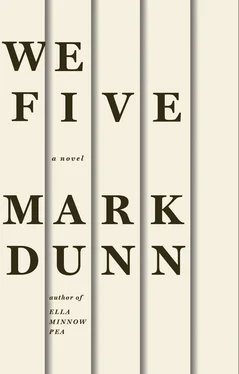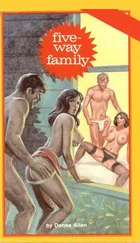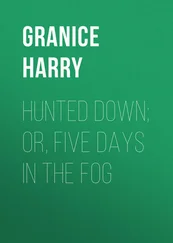“And just how do you know this, Molly?”
Molly brought herself to within a few inches of Maggie’s face. “Because Pat’s too stupid to play a game that thorny. There. I said it. I fell in love with a good-looking idiot. And I’ll deal with the consequences without any help from you .”
And with that, Molly, along with her night bag and her wad of nightgown, fled into the night.
At the hospital the clock in the corridor struck two. The men’s ward was dark and quiet save for the sound of a couple of patients snoring lightly and another man moaning, but not too loudly, in response to his nocturnal pain. Cain, sitting in his stiff, upright chair, dozed off. It was only for the briefest moment, but was still long enough to nearly topple him headlong from his chair. One of the nurses had asked earlier if he might not be more comfortable at home, or at least stretched out upon one of the divans in the solarium, which was often used to billet those who wished to spend the night close by.
“Maybe later,” he’d replied. “I’m fine right here for now.”
“Well, I’ll be at the nurse’s desk just outside if you need anything.” She smiled pleasantly. “You’re a good and devoted friend to sit up with Mr. Harrison like this.”
Cain nodded. Circumstances did not permit him to give an even more revelatory response to the nurse’s thoughtful observation.
At a couple of minutes past two, Pat Harrison woke from his morphine induced sleep of the dead. But he was hardly awake. Like each of the three other awakenings Cain had witnessed, Pat asked only for his mother, wondering in fractured words interposed between struggles for breath when she would come to see him. Each time, and not even knowing if Pat had understood a single word of his reply, Cain told his friend that he shouldn’t worry; she was on her way. Cain hadn’t the heart to divulge the hard truth: that Pat’s mother had died several years earlier after a lengthy bout with tuberculosis.
Cain supposed he could say the same thing he’d said before. And yet, something about the disconsolate way Pat asked the question — as if, in spite of his jumbled cognition, he was getting the strong sense that she wouldn’t be coming — motivated Cain to say something quite different this time.
At that instant, Cain’s mind flashed on a movie he’d seen a few years earlier. It was a D. W. Griffith picture starring Lillian Gish, The Greatest Thing in Life . There was a scene in the movie that had always haunted him. It took place during the Great War and involved a white officer and a mortally wounded Negro soldier. As the Negro was slipping away, he asked for his mother, and the officer hadn’t known what to say. He did know, though, that the soldier under his command would die easier if he thought his mother was at his side, easing him lovingly through the dark passage into death. Cain remembered vividly what happened in that next moment: the officer, pretending to be the dying soldier’s mother, reaching over and kissing the young soldier.
The scene touched Cain deeply, the image of that kiss resonating for him long after he’d left the theatre.
Cain raised himself up from his chair. He placed a cool hand on Pat’s feverish forehead. Pat, his eyes swollen tight from lacerations to his face, asked again if his mother was there. Had she finally come? The hand that touched him: was it hers?
Cain answered yes.
And then Cain placed himself halfway upon the bed so he could embrace Pat as a mother would embrace a child — holding him close and protectively in his arms. And then Cain, playing the part of Pat’s mother, kissed him on the lips.
Pat accepted the kiss. He held the kiss tightly upon his lips as Cain slid back from the bed and into the chair.
And then, most remarkably, the cloud lifted from Pat’s face and he smiled.
And then he spoke.
“Cain?”
Cain leaned in. “What is it, Paddy?”
With labored breath: “Tell my mother she needs a shave.”
And in that next moment the rising and falling of Pat’s chest, his attempts to breathe through lungs that were crushed and nearly useless, stopped.
Pat Harrison was dead.
Cain stared at Pat’s lifeless body for a moment. Then he got up and went out to the nurse’s desk to tell her what had happened. She telephoned the doctor who was on night duty, and went into the ward to confirm what Cain had reported. Cain stood next to the nurse’s desk. He watched the night doctor and one of the other night nurses racing down the corridor, listened to their shoes clicking isolate upon the linoleum. He watched them disappear into the ward. Cain walked over to the swinging doors and observed attempts to revive the patient. Then came a shake of the head and mumbled instructions to the nurses from the somber doctor.
Cain walked down the silent corridor to a room he’d looked into earlier that day — the one with the locked glass cabinets lining the walls — the cabinets that had bottles and vials and ampoules inside. He looked for one with skull and crossbones on the label. He was set to break the glass and take something from inside which he could ingest to end the overwhelming agony of loss he was feeling in that moment — to remove himself to either a state of absolute nothingness or to some beautiful Afterworld where he might get lucky and find Pat among the angels.
But in that next moment he recalled from his chemistry class at the college that there were few medicines in modern times — even those Victorian holdovers, the mercury and arsenic compounds — that healed and killed with equal efficacy, few chemical substances to be found in a hospital medicine cabinet that could be depended upon to induce an instantaneous and relatively painless death.
Which is why Cain Pardlow withdrew from the hospital’s medicine supply room without breaking a single pane of glass — why, still unseen by anyone in his quest for infinite peace, he found himself in an unoccupied room, its window left temptingly half open. He smiled over how perfectly condign it seemed for him to take himself out of the world he now abhorred in the very same manner in which he’d been robbed of the only person he’d ever truly loved.
And with that smile still pasted upon his lips, and with no thought of Ruth and the plans they had been making together, Cain Pardlow threw himself from the window. He died a convenient eight seconds later from a severely fractured skull.
London, England, October 1940
Three days later Carrie’s mother died. Carrie was with her. And Jane had been with Carrie.
The two had grown very close during Sylvia Hale’s final hours and in the wake of the senseless deaths of Pat and Cain. The week past had been a particularly hard one for residents of the nearby London neighbourhoods that were being bombed night after night, filling the beds of the venerable St. Bartholomew’s Hospital with the injured until there wasn’t a single mattress left unoccupied. (This in spite of a good many of the victims having been removed to hospitals elsewhere in the city, and even outside of the city altogether, any place that offered some modicum of safety in a land in which no one — not even the already severely injured — was really all that safe.)
During their leave of absence from the factory, Carrie and Jane were conscripted by the Sisters of St. Bart’s to help tend to the Blitz’s most recent casualties. The two had worked very hard. Their assistance to the many men, women, and children who, like Carrie, had lost both their homes and close family members to the air raids kept Carrie from thinking too obsessively about her own trials, and prevented Jane from reliving in her every waking moment what Tom Katz had done to her.
Читать дальше












